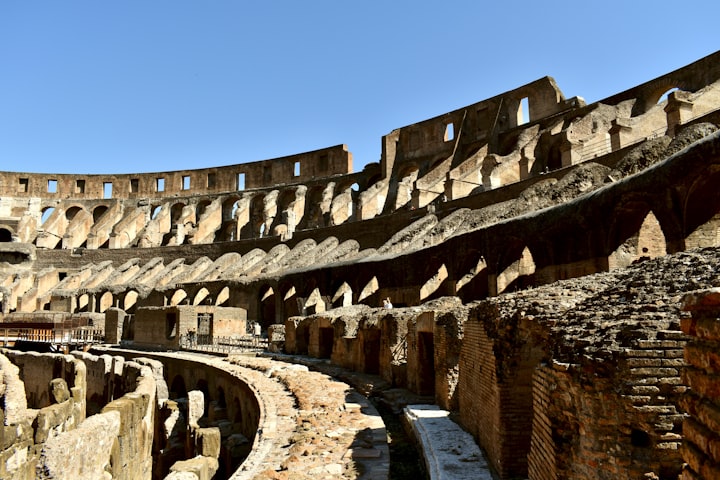
The Roman Empire was once the most influential and powerful force in the world, stretching from Europe to Africa and the Middle East. The Romans are renowned for their prowess in warfare; their systems of governance and administration revolutionized the concept of democracy, law and justice, and their legacy still lives on today, some 2,000 years later.
The Early Years
The Roman civilization began in 753 BC on the banks of the Tiber River in Italy. It began as a small kingdom with villages and farming communities. However, by 509 BC, the Romans overthrew the monarchy and established a republic, which lasted for about 500 years until Julius Caesar became the first dictator of Rome.
Under the republic, the Romans were highly skilled in warfare. They maintained a powerful army with well-trained soldiers and an efficient command structure. Their military conquests were swift, and the Romans soon became an empire, extending their territories from Europe to parts of North Africa and the Middle East.
Expansion and Dominance
The Romans conquered new lands with a combination of military might and clever diplomacy, assimilating conquered territories into their way of life. They developed unique engineering capabilities that allowed them to build massive constructions such as bridges, aqueducts, and roads, which enabled the rapid movement of troops and goods across vast lands.
Within the empire, the Romans believed in law and order, and their legal system was robust and advanced. The Roman law was just and applied equally to all people, regardless of their social status. This sense of justice played a significant role in making the empire cohesive and unified.
The Romans also promoted a common language, Latin, which became the root of several modern languages such as Spanish, Italian, Romanian, and French. Latin became the language of literature, and several masterpieces, including the works of Virgil, Horace, and Ovid, remain timeless classics today.
Decline and Fall
As the Roman Empire expanded, it became harder to govern efficiently, and the centralized government became increasingly corrupt. Economic instability, political wrestling, and public unrest all contributed to the decline of the Roman Empire.
Several barbarian tribes began to invade the empire from the outskirts, sacking cities and causing destruction. The Romans tried to defend their territories, but the empire's weakening state and the decline in military strength made it difficult.
The Battle of Adrianople in 378 AD, where the Roman army was defeated, signaled the beginning of the end. Several factors such as declining agricultural output, inflation, and the empire's increasing dependence on military force and mercenaries led to the eventual collapse of Rome.
In 476 AD, the empire was taken over by Germanic tribes, marking the end of the long and powerful reign of the Roman Empire.
Legacy of the Romans
While the Roman Empire eventually crumbled away, the Roman legacy still lives on. The empire had a profound impact on the world, especially in terms of art, culture and language.
The Romans were master builders, and the ruins of their buildings such as the Colosseum, the Pantheon, and the Forum, still stand and attract millions of visitors from around the world each year.
The Roman legal system and Latin, the language of the Romans still influence the practice of law and are the root of several modern-day languages.
Roman ideas of governance, democracy, and civic duty continue to influence present-day governments and societal structures.
In conclusion, the Roman Empire was a remarkable civilization whose influence still resonates globally today. The rise and fall of the Romans demonstrate the importance of strong governance, a robust legal system, and responsible leadership to build and sustain a strong and prosperous civilization. The legacy of the Romans continues to inspire people worldwide, but it also serves as a cautionary tale of how devastating the consequences can be if those values are not upheld






Comments
There are no comments for this story
Be the first to respond and start the conversation.